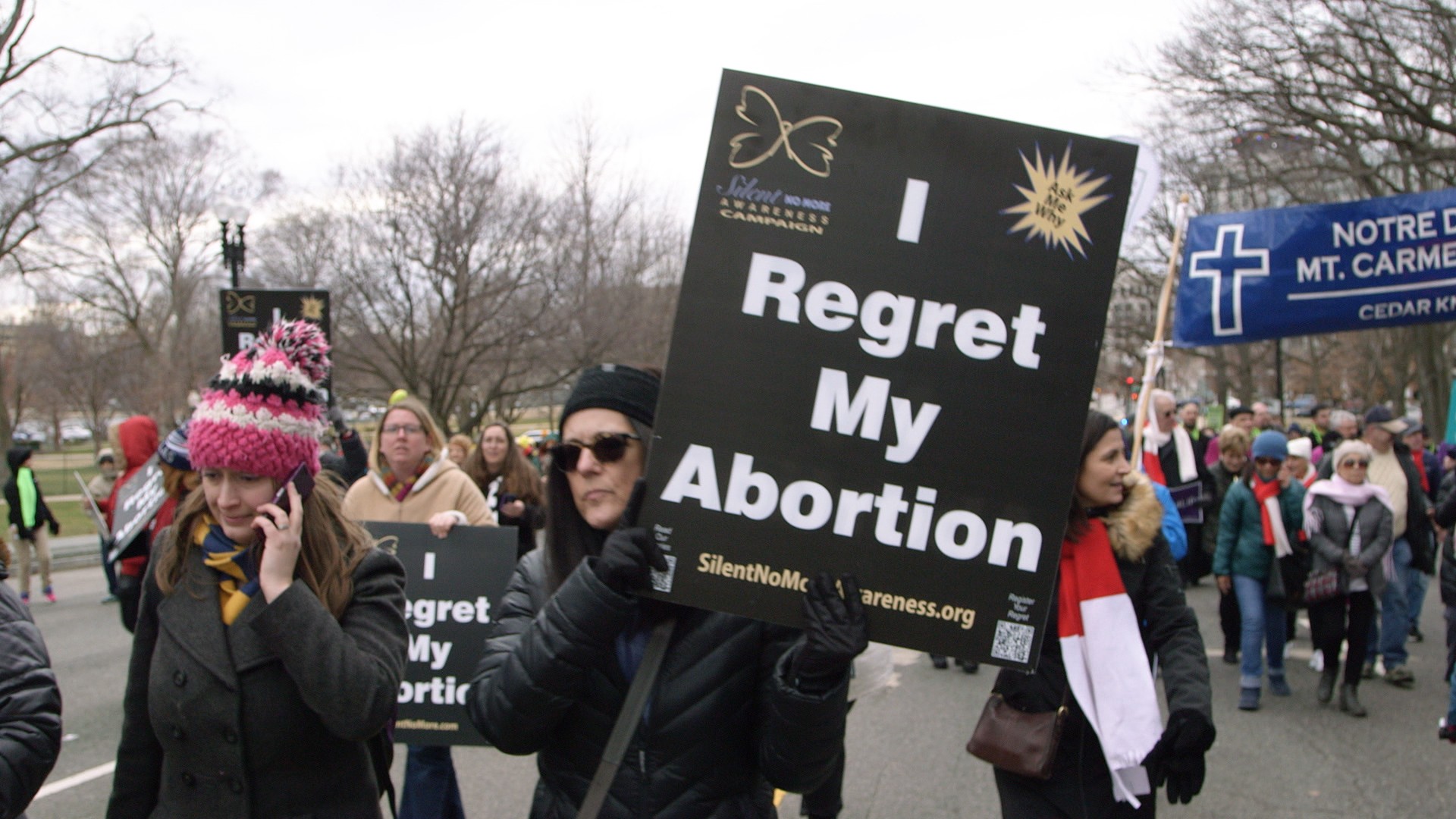Erin Hooley/Chicago Tribune/TNS via Getty Images
The Trump administration announced last Monday that it had appointed former Maine health commissioner Mary Mayhew to run Medicaid, the government-run health insurance program for people with low incomes, people with disabilities, some pregnant women, and more.Mayhew is known for her “aggressive” conservative reforms to the program that lead to enrollment dropping by almost 25 percent under her watch. As other outlets have pointed out, she’s a Medicaid critic in charge of Medicaid, which is the single largest source of health insurance in the US—a program whose budget the GOP has already said they plan on cutting.Mayhew’s appointment has received considerable press for its potential to affect health coverage, but less discussed is the impact her hiring could have on access to reproductive healthcare. In addition to supporting conservative policies like work requirements for Medicaid, Mayhew has also been vocal about her anti-choice views and her disdain for Planned Parenthood in particular.When she was running for governor in Maine earlier this year, Mayhew said “I will support legislation that protects the lives of the unborn…and I am also proud to say I implemented a policy that stopped the use of tax dollars for abortions by Planned Parenthood."Reproductive health advocates find these views concerning given that Medicaid is critical for access to family planning: According to the Guttmacher institute, the program covered nearly 13 million women of reproductive age in 2015 and accounts for 75 percent of all publicly funded family planning services.Mayhew’s appointment has renewed long-held concerns that the Trump administration may let states exclude clinics that provide abortions from their Medicaid programs (even though such a move doesn’t appear to be legal—more on that below). What that would mean, in effect, is blocking women from using their Medicaid insurance at highly-qualified reproductive health clinics that provide services like birth control and STD testing if the clinic also provides abortion services. Recent news reports show that similar provider exclusions in Texas and Iowa led to fewer people getting family planning care than before changes were implemented.“The administration seems open to and, in fact, encouraging states to try to exclude abortion providers from their Medicaid programs,” says Kinsey Hasstedt, a senior policy manager with the Guttmacher Institute. “There are real concerns for people’s access to the family planning services that they need, particularly for marginalized communities, low-income individuals, uninsured folks and real concerns for the quality of care patients would ultimately receive by excluding these highly qualified providers.”Republican legislators have long tried to “defund” Planned Parenthood by proposing amendments to exclude it from federal programs like Medicaid and Title X, though these amendments have ultimately failed or been vetoed.“Defunding” is a misnomer anyway: There is no line item in the budget for abortion providers like Planned Parenthood. Clinics only receive federal funds in exchange for providing services like birth control, STD testing, and cancer screenings to people with Medicaid (just like it works with any other kind of insurance), or by winning grants earmarked for family planning. Medicaid funds can’t be used to pay for abortions except in the cases of rape, incest, or danger to the mother’s life; and family planning grants from the program known as Title X can’t be used for abortion under any circumstances.Since federal lawmakers have been unsuccessful in “defunding” women’s health clinics that also provide abortion, some states are trying to get approval from the government to exclude these clinics from Medicaid at the state level—it’s a backdoor way to accomplish what Congress has been unable to do.Texas, for example, has submitted a special waiver to exclude abortion providers from its Medicaid program, and that application been pending since July 2017. In January, Governor Greg Abbott personally wrote to President Trump asking him to approve the request. (The Obama administration had rejected Texas’ request to do exactly this in 2011, so the state turned around and set up its own state-funded program that excluded abortion providers as of 2013. It’s hoping a different administration will reinstate its federal Medicaid funding.)
Watch More From VICE News:
In a word, no. Medicaid has special rules for family planning services which state that people with this insurance have their choice of family planning provider, so long as the provider takes Medicaid. It’s literally called the “free choice of provider” provision. Back in 2016, the Obama administration reminded states that they can’t block providers from Medicaid for any reason other than their ability to provide care. But in January 2018, the Trump administration rescinded that Obama-era guidance, signaling to some the administration’s possible willingness to approve requests like those from Texas.“Ultimately, we have been concerned about the administration’s efforts to try to promote this [kind of exclusion] and just because they say they can doesn’t mean they can legally,” Hasstedt says. “Regardless of what the Trump administration is saying or may say in the future, states still do not have the authority to oust otherwise qualified family planning providers from their Medicaid programs just because those providers are in some way associated with abortion.”Even if Mayhew did approve these requests, the Trump administration would very likely get sued, Hasstedt says—but then it’s up to the courts to decide the outcome. “What would happen from there is harder to predict. But we have seen so far is that courts have overwhelmingly found in favor of the providers,” she says.But the Trump administration is quickly leaving its imprint on courts nationwide. According to the Pew Research Center, Trump has appointed more federal appeals court judges so far in his presidency than Obama and George W. Bush had appointed at the same point in their first terms combined.Not only does the Medicaid statute make very clear that people have their free choice of provider, but the type of waiver Texas submitted (known as an 1115) is specifically meant for programs that will promote the objectives of Medicaid. “Waivers are intended to be experiments in order to help make health coverage better for people in this country,” Hasstedt says. “The idea of using the waiver process to exclude providers just doesn’t jive—that’s not what it’s intended for.”Whether the administration and courts allow these Medicaid requests or states simply choose to reject federal funds to set up their own programs, evidence shows that people’s access to care will be impacted. A Guttmacher analysis of Texas’ state-run program found that it actually provided less access to family planning services in 2015 than it did in 2011, before it had excluded abortion providers like Planned Parenthood. Hasstedt says there have been big drops in the number of clinics in Texas that can serve high volumes of patients (read: thousands per year), and these clinics tend to be providers that focus on reproductive health. Excluding these providers from the program has a huge impact on patients, she says.“Those types of sites that are really focused on that service are able to see a lot more patients than, say, private providers that the state ends up trying to fill the gap with,” she says, adding, “Just because a provider who has not previously done family planning services now gets money to do that that doesn’t mean that overnight that provider’s going to be able to go from zero to offering a full range of [birth control] methods to 3,000 women every year. It takes time.”A recent report in the Texas Observer bears this point out: Of the approximately 5,400 providers in Texas’ program, almost half didn’t see a single patient in 2017, and more than 700 providers saw just one patient each. Twenty-seven providers served more than 1,000 people, but 11 of those were labs, which don’t actually see patients.Separately, the Center for Public Policy Priorities found that after Texas excluded Planned Parenthood from its health program for low-income women, the number of women getting health services in the program fell by 39 percent (from 115,226 women in 2011 to 70,336 in 2016). And the state recently announced that it was canceling its contract with The Heidi Group, an anti-choice reproductive clinic chain, after it failed to serve the number of patients it claimed it could.“One of our big concerns over and over with this funding restrictions is it doesn’t take very long to exclude providers and damage a state safety net, it takes a long time to build it back up,” Hasstedt says.Programs like this aren’t just in Texas. The Des Moines Register reports that after Iowa banned abortion providers from Medicaid via state legislation, its state-funded program provided 73 percent fewer services. Here’s what that looks like: In the last three months before the altered program launched (April to July 2017), the state covered 3,637 family planning services, and over that same period one year later, it only covered 970 services. The health department says providers have up to a year to submit claims for reimbursement so the numbers could rise, but the fact is that the program now includes providers, like a Catholic health system, that don’t offer contraception.In a statement, Dawn Laguens, executive vice president of the Planned Parenthood Federation of America, compared Mayhew’s hiring to a fox guarding the hen house, adding “We have no doubt that Mary Mayhew will advance the Trump-Pence agenda of attacking women’s health and rights. When Texans were blocked from accessing care at Planned Parenthood health centers, people went without the care they needed. This is a dangerous policy that we must not take nationwide, yet that is what Mayhew is poised to do. Women make up the majority of people who rely on Medicaid—and it is women and families who will suffer the most from Mary Mayhew’s policies.”Hasstedt stresses that the importance of Medicaid for people’s access to family planning services cannot be underestimated. “People deserve to be able to make their own family planning decisions and in order to do that, they need affordable access to high-quality care. Medicaid is a program that helps many people get there,” she says. “We should be helping people have access to that program and expanding that access rather than jeopardizing it.”Sign up for our newsletter to get the best of Tonic delivered to your inbox.
Advertisement
Advertisement
What does Planned Parenthood have to do with Medicaid?
Advertisement
Watch More From VICE News:

Is it legal to exclude abortion providers from Medicaid?
Advertisement
What would these possible changes mean for people with Medicaid?
Advertisement
